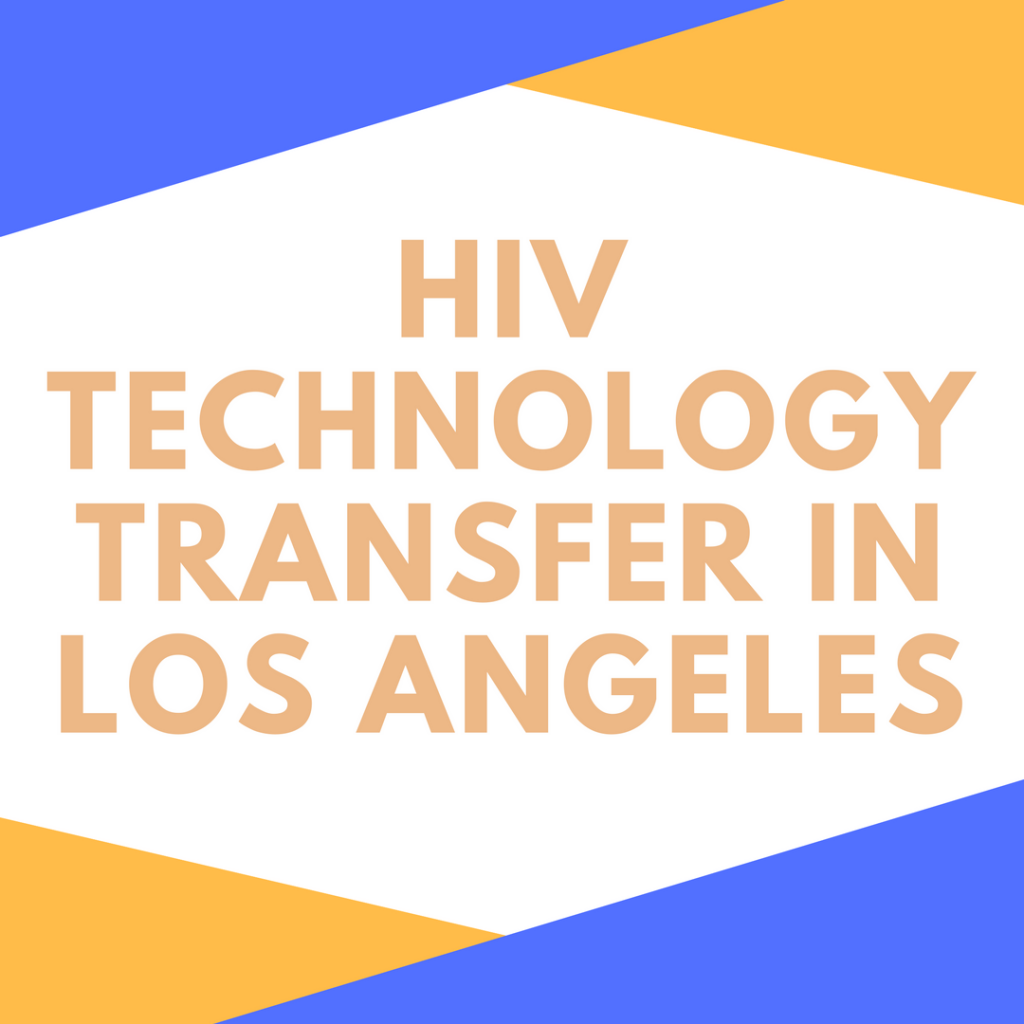
The aims of the HIV Technology Transfer in Los Angeles project are to document and develop resources for technology transfer among HIV/AIDS community-based organizations (CBOs) serving Los Angeles communities. Several CBOs have publicly commented on the gap between current mandates to implement and evaluate evidence-based HIV interventions and the resources that are available to meet these requirements. A long-term objective is to share CBOs insights into using science-based interventions and to increase the training, materials and other resources they need to carry out HIV prevention. CHIPTS and the City of Los Angeles AIDS Coordinator (ACO) seek to assist CBOs in meeting these objectives. The potential impact of the study is enhanced implementation of evidence-based interventions in Los Angeles and throughout California.
The process of adapting evidence-based interventions into CBO settings is known as technology transfer. The Technology Transfer Model (TTM) outlines three primary phases of this process: pre-implementation, implementation, maintenance and evolution. The pre-implementation phase consists of identifying the need for an intervention, acquiring information, assessing the fit between an intervention and the goals and activities of the organization, and preparing the organizational staff. Implementation includes obtaining technical assistance and conducting process evaluation of the interventions. Finally, maintenance and evolution includes ensuring the presence of staff that can continue to implement the intervention, organizational change, and program evolution.
CBO staff who have been involved in the three phases of technology transfer can offer rich insights on best practices and lessons learned in their communities. Up to 18 science-based programs have been or are being implemented in Los Angeles. Up to two staff from each of these programs are eligible to participate (N = 36). Eligible participants for this study completed close-ended background surveys regarding their organization’s characteristics and were interviewed for up to 90 minutes. Participants were paid $30 for each interview completed. Interviews were conducted twice with staff from these programs. The first wave of interviews asked about pre-implementation and implementation phases of technology transfer. The second wave of interviews, scheduled when many of the programs finished at least one cycle of implementation, asked about maintenance and evolution. Surveys were summarized and used to describe the general organizational characteristics of CBOs using evidence-based programs. Interviews were transcribed, coded and analyzed for techniques, challenges, strategies, and resources used or needed by the CBOs.
Interventions, Training Manuals, etc. :
- HIV Technology Transfer in LA (developing resources for technology transfer among HIV/AIDS community-based organizations)- Interview Questions
- [Download not found]
- [Download not found]
